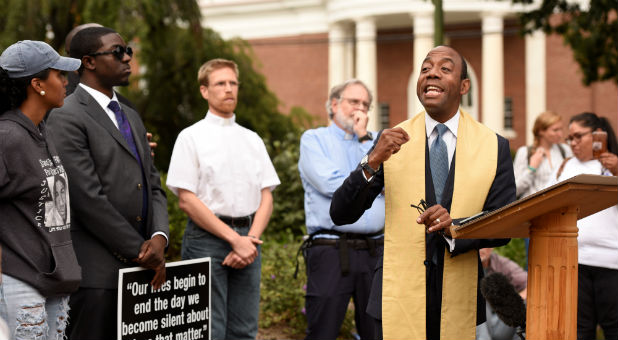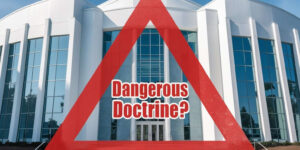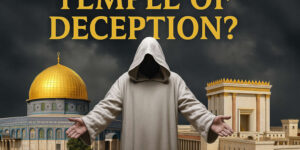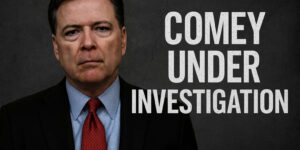If You’re Confused Over Recent Racial Unrest, Consider The ‘Torrent of Pain’ of a Black American
We were supposed to simply go over some chapters on a book I am writing—part of which covers the topic of racism. I met with a black friend of mine. He is a most impressive, tall college professor—a specialist on the civil rights movement—and he pastors a small inner-city church. We had talked about my material for about an hour when suddenly, everything changed.
Out of him came a “torrent of pain.” I could see that he felt that I did not really understand his community, his pain, his struggle, his history. Although he did not say it this way, he was saying, in effect, that my nicely arranged chapters were thoroughly “sanitized,” loaded with statistics and information—all of it accurate—but that I failed to really understand the raw pain of the streets. For one hour and 45 minutes he talked—with intensity—highly animated—sometimes looking at me—more often staring ahead at nothing as he spoke. I did not say one word for the entire one hour and 45 minutes. I was the student. He was the teacher. I knew it. I was learning. In fact, I was getting a crash course on reality.
Although the moment was too sacred to record, I so wish I had a recording of it. I wish I could play it for every white. May I have permission to be blunt? Most of us (whites) just don’t get it. Before you dismiss this, please hold on. For the sake of the nation. For the sake of our black brothers and sisters.
Allow me to give a little background. I have felt profoundly convicted by the Holy Spirit during the last three years to conduct a “listening tour” regarding what racial healing might look like. By that, I simply get with one or more black leaders at a time and say, “Please teach me about this topic. What do I need to know? What do I not understand? Talk to me.” And they do. And I always come away convicted—legitimately so—and determined to make a difference.
This past Saturday was one of the most remarkable of them all.
When you really allow someone to “dump their pain,” you learn quickly that racial problems are the figment of our imagination. And even the term “racism” might mean something quite different than you—if you are white—might think. How do we go forward? First, let’s talk about what we should avoid.
Ditches to Avoid
The road to racial reconciliation is apparently a very narrow road with deep ditches on both sides:
On one side is “Ditch A,” the “dismissive ditch.” By that I mean, white Christians need to stop saying, “But some of my best friends are black,” thinking that that phrase addresses the pain. They also need to stop saying, “I never owned any slaves,” or “Slavery was 150 years ago, so blacks need to just ‘get over it.'” The issue we are addressing is a systemic, deep inner pain that (1) we as whites do not grasp and (2) is present tense, not a “Civil War issue.”
On the other side is “Ditch B,” the “manipulation ditch.” We as whites do not want to be vulnerable to and manipulated by that tiny percentage of blacks—the Al Sharptons of the world—who carry a perennial chip on their shoulder and have made a fundraising cottage industry by of creating racial division, animosity and hypervictimization.
Between those two ditches is a God-ordained, Christ-honoring, Holy-Spirit anointed highway for racial healing. It is called repentance and forgiveness.
Repentance and Forgiveness Change Everything
As my black friend to whom I referred above said to me, very softly and tenderly—almost in a plea—after the hour and 45 minute “torrent of pain” poured out of him: “Whites need to repent … and blacks need to forgive.” He is correct.
Those are the keys: repentance and forgiveness. And yes, the repentance might have to happen over and over. Yes, I know you—as a white—might feel once is enough. But it is not. I am more than willing to repeat my statements of repentance over and over if that is what it takes to see black brothers and sisters healed.
Distractions
And we must avoid the distractions. It is not what President Trump says or fails to say. It is not what House Minority Leader Nancy Pelosi says or fails to say. These—and all other elected officials—will not and cannot ultimately make the difference. If the president or if the minority leader were to both say all the right things, that would not—in and of itself—heal the land. The church—repenting and forgiving—can make the difference.
And it is ultimately not about whether we have statues torn down or left up. Tear them down if you want. Or leave them up if you want. Presence or absence of statues will not save us. It will not produce racial healing. I have no interest in whether the statues are up or down. Either is fine with me.
That is like arguing about whether President Obama was golfing too much when the real issue was his policies. That is like arguing about Melania’s high heels when the issue is lives being saved in Houston. I cannot stand these constant “gotcha,” nitpicky distractions—whether Democrat or Republican. Yes, I know symbols matter—I get that—but not as much as substance. We must focus on bona fide substance. Principles. Principles that translate into policies—public policies. Detroit—in 1960—was one of the world’s most remarkable cities. A half-century later, it lay in ruins. Why? Policies. Policies matter.
The Issue
I am laser-focused on one thing: The church of Jesus Christ, operating in the power of the Holy Spirit, bringing racial healing. Do not veer to the right or to the left. Keep the focus there.
But it will take whites who are willing to listen, ask questions (not make statements), listen some more, ask more questions and learn of the wounding of our black brothers and sisters.
And then—assuming white Christians will own the ways in which we did not even know we have contributed to the systemic, cultural sins (and yes, we have), we repent, from our hearts.
And that allows our black brothers and sister to forgive … and consequently, to heal.
The evil one cannot wreak havoc in the arena of repentance and forgiveness. He cannot operate there. Repentance and forgiveness render him powerless.
Once we get the discussion off of what some Republican or some Democrat said, and once we get the discussion off of statues—whether keeping them or destroying them—and we focus on the spiritual issues of repentance and forgiveness then, at that point, Satan—the great divider—will be handcuffed from dividing our nation anymore, and racial healing will break out from “sea to shining sea.”
The Big Five
As the foundation of repentance and forgiveness is being laid, there is a superstructure of five practical issues that must be addressed:
- Economic Investment: This requires the government to create a considerably stronger partnership with the private sector. To be blunt, bureaucrats create obstacles. Businessmen solve problems. Government can play a critical role of creating the “highway” (sometimes just by getting out of the way) which allows businessmen and women to move into to urban areas as problem-solvers. This can be accomplished.
- Educational Challenges: This one is more practical for all of us. What if every suburban church created a venue for adults to tutor inner-city children? The result would be more than improved test scores. The result would be relationships. We would see white grandparents caring so much for a black third-grade girl that they would invest in her—follow her progress—and someday be potentially involved in assisting her to enter college. Relationships are the key.
- Prison Reform: The only people who don’t care about this topic are those who do not really understand what is happening in our nation’s prisons.
- Judicial Reform: At the risk of repeating myself, the only people who don’t care about this topic are those who do not really understand what is happening in our nation’s courts.
- The Family: Whites must care about the destruction of the black family and find every way—through legislative and personal means—to assist in the re-establishment of the black family with dads in the house, dads and moms married to each other. Hard to do? Yes. But we must know that the fatherlessness issue is the No. 1 cause of black pain. The black family survived the horrors of slavery. Yet the “new society” and its “war on poverty” involved public policies which decimated the role of the black husband and black father. Legislative action is needed—now.
When blacks complain about some the above five items, some whites might be inclined to dismiss them as “whiny.” That is why whites must be involved. We must help address these issues.
And allow us to simplify an otherwise complex topic. Senator James Lankford (white) and Senator Tim Scott (black) have advocated for “Solution Sunday,” in which every church attending person simply invites persons of another ethnicity into their home for dinner. (I recognize that few people invite people to their homes for dinner anymore, so if the home is not an option, then let’s at least invite persons of a different ethnicity to a restaurant.) Consider what would happen all over America if every churchgoer would do this. Rich relationships would be formed.
Furthermore, time is of the essence. I am not a prophet nor the son of a prophet. However, I felt that last January—as we approached the inauguration—America had 30 months to address four extremely critical issues, first of which was the racial tension in our nation (the other three being the immigration fiasco, a revival among Millennials and the restoration of a proper relationship between the U.S. and Israel).
For the record, we are not involved in racial healing out of some avant-garde “political correctness.” We are not involved as a way of assuaging our guilt. This is not some cathartic exercise. We are not trying to be chic, like some Oscar-winning actor who might call for everyone else to be “environmentally responsible” while he lives in a 20,000-square-foot mansion and flies in a private jet. And we are not responding with the shrill, biblically devoid, theologically lacking voices of the “religious left.”
We are responding because the Holy Spirit has convicted us of our ways, and the cross of Jesus puts us all on equal footing. And we cry out, “Lord Jesus, forgive us our sin and help us to do what You want us to do. Amen.”
Dr. Jim Garlow is the senior pastor of Skyline Church in San Diego.






































